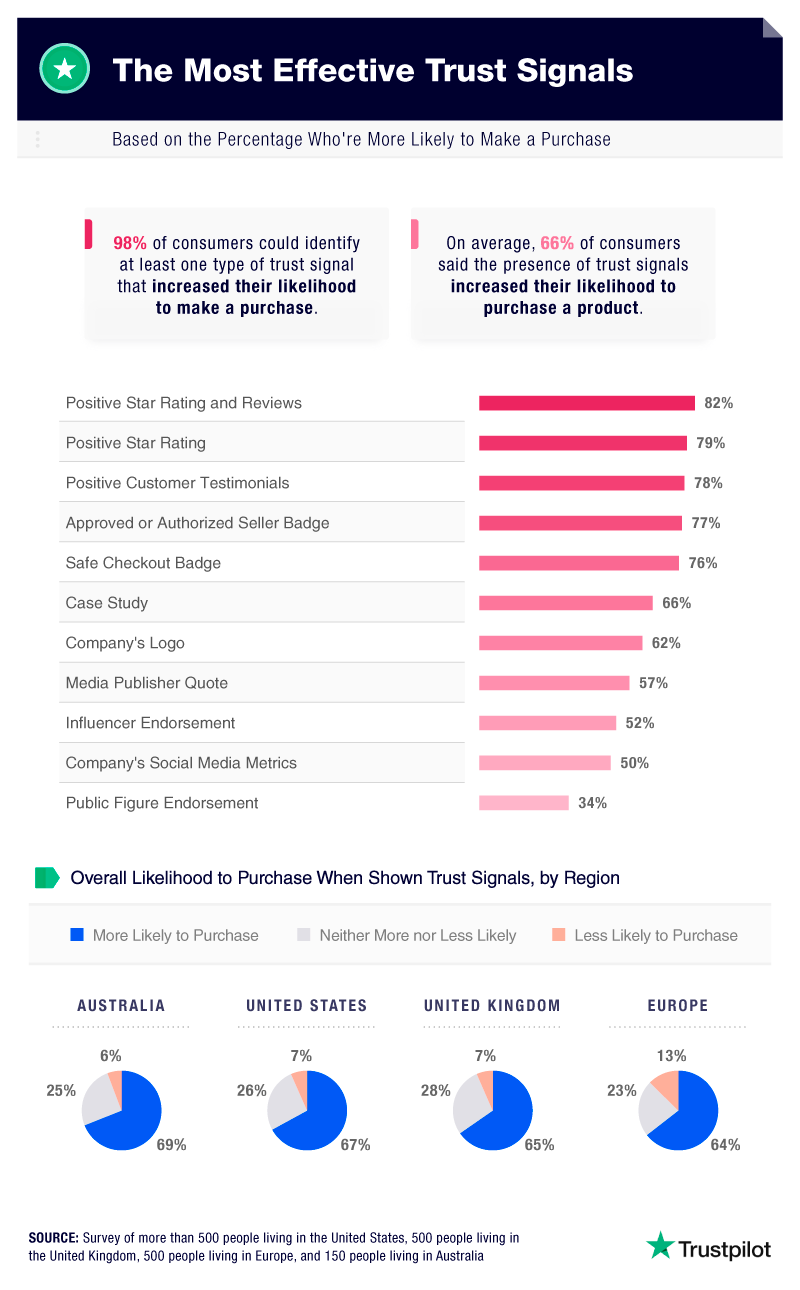You really need to floss more
In this episode of Recur Now, we're expanding product offerings to increase retention.
Read MoreBIG NEWS: Paddle acquires ProfitWell to "do it for you"
Today, we see the power of social proof. Plus, sales advice from a master and why the freemium model isn’t going anywhere.
Your top subscription news
Socially accepted
We know social proof—reviews, social likes, online mentions, and testimonials for products, services, or brands—has a powerful psychological effect on customers. And the team at Trustpilot researched how social proof influences a buyer’s purchasing process, and how you should leverage social proof in your marketing strategy.
They have an insanely in-depth piece on this, with the data to back it. They’re going deep on highlighting trust signals—the most effective ones, at what stage of the buying process each is most effective, and the most effective location of each. Because they found an average of 66% of customers said the presence of social proof increased their likelihood to purchase a product.
"To find out exactly how social proof influences the purchasing process and which trust signals are the most important, we surveyed nearly 1,700 consumers across multiple regions (United States, United Kingdom, Australia, and many European countries) and generations (baby boomers, Gen Xers, millennials, and Gen Zers)."
They found that positive star ratings and reviews were the most important trust symbol. Eighty-two percent said it made them more likely to make a purchase. Positive star ratings and reviews on the homepage were the trust signals most likely to drive customers to make a purchase at 86%. Positive star ratings and reviews on a product page were the second most likely, influencing 85% of customers. And customers apparently prefer different trust signals throughout the buying journey, so they break that down, too.

To see which signals are considered most important to consumers and how the appearance of signals affects different demographics during the purchasing process, check out the full piece.
Why do indie hackers give up on sales too soon?
James Urie from Close, thinks he knows what’s holding you back. He was recently interviewed on season two of the Sales for Founders podcast, during which host Louis Nicholls brings in sales and marketing experts and successful founders each week to drop their intel.
And this episode is a bit different because James isn’t a founder, he’s actually a full time salesperson at Close, selling sales software to other sales teams. And he brings the sales insights we need—like when to utilize SMS for sales, and how crucial it is to hyper-personalize your sales approach.
"You need to realize that you also need to put in a lot of work to communicate with these people and do things that are hard... Put in the work to communicate with these folks."
Because they know sales can be a beautiful beast.
Freemium defined
Ah, our good friend freemium—a topic that, in this industry, we know is not going anywhere. And we're of the camp that freemium is great for customer acquisition, but far from a revenue model. And our ProfitWell cohorts studied 1k SaaS and subscription companies to break this down.
"You want to get as many customers as you possibly can as fast as possible. There is no other model that will get you them faster than freemium. Because people love free stuff." - Hiten Shah
Freemium is, more than likely, going to stick around for quite a while. Customer acquisition costs keep rising but for the free folks, at a much lower rate.
Is the SaaS world ready for freemium to reign as king as far as revenue goes? Not so much.
"My views on freemium have evolved a lot... I think the thing that we miss is that freemium is not a revenue model, it's an acquisition model... That's the big misconception about free: is that it is used to acquire customers and to own the lead." - Patrick Campbell
It's hard enough for some to make a sales conversion the traditional way. Regardless, freemium is here to stay (in some capacity). Here's an episode of The ProfitWell Report that shows us why.
Recurring Rhetoric: freemium
It's more than just a word, it’s an acquisition model. By opening up your product for free, you can improve monetization. You can get customers through the door for little, let them experience your product, and then tell you where it needs to go next.
And that “next"—that you can charge for.
And that’s a wrap for your November 5 subscription news. Recruit your teammates into the subscription know: profitwell.com/recur/recurnow to sign up for episodes on the daily.
If you have news to share, hit me up at abby@recurnow.com and we'll collaborate.